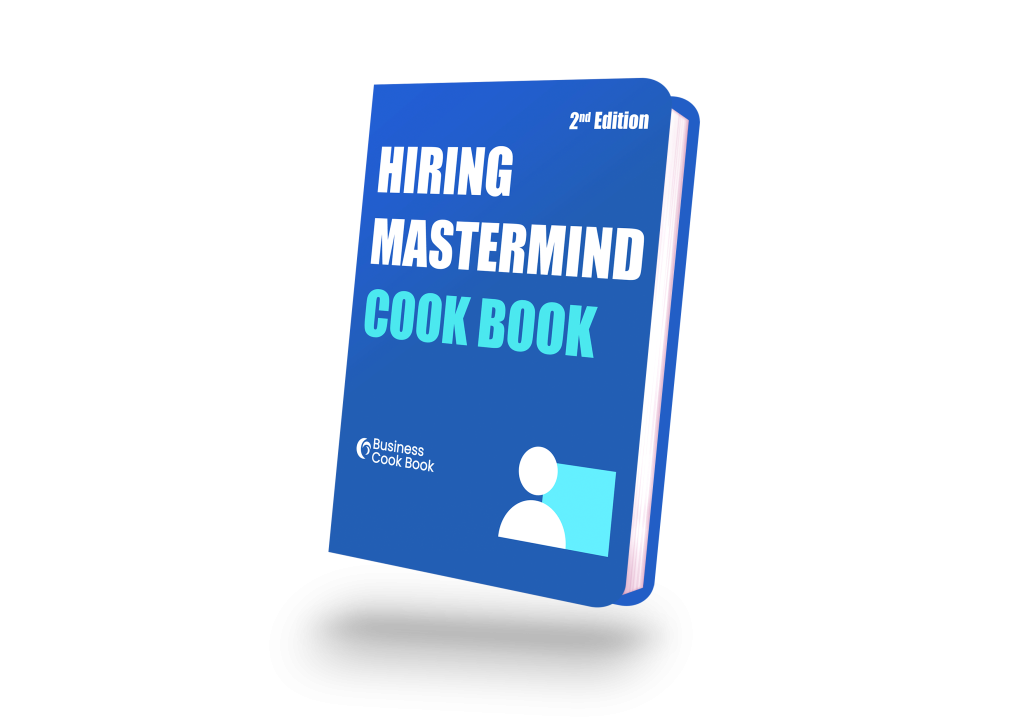• MANAGING PEOPLE
• Human resource management
✔ Human resource management defined
✔ Human resource system
✔ Models of HRM
✔ Aims of HRM
✔ Policy goals of HRM
✔ Characteristics of HRM
✔ Reservations about HRM
✔ HRM and personnel management
✔ How HR impacts on organizational performance
✔ HRM in context
• Human capital management
✔ Human capital management defined
✔ Human capital management and human resource management
✔ The concept of human capital
✔ Human capital management: practice and strategy
✔ Human capital measurement
✔ Human capital reporting
• Role of the HR function
✔ The overall role of the HR function
✔ The role of HR in facilitating and managing change
✔ Variations in the practice of HR
✔ Organizing the HR function
✔ Marketing the HR function
✔ Preparing, justifying, and protecting the HR budget
✔ Outsourcing HR work
✔ Shared HR services
✔ Using management consultants
✔ Evaluating the HR function
• The role of the HR practitioner
✔ The basic roles
✔ Models of the practitioners of HR
✔ Gaining support and commitment
✔ Ethical considerations
✔ Professionalism in HRM
✔ Ambiguities in the role of HR practitioners
✔ Conflict in the HR contribution
✔ The competencies required by HR professionals
• Role of the front-line manager
✔ The basic role
✔ The line manager and people management
✔ The respective roles of HR and line management
✔ The line manager’s role in implementing HR policies
✔ How to improve front-line managers as people managers
• International HRM
✔ International HRM defined
✔ Issues in international HRM
✔ International organizational models
✔ Convergence and divergence
✔ Cultural diversity
✔ Think globally and act locally
✔ International HR policies
✔ Managing expatriates
• HUMAN RESOURCE MANAGEMENT PROCESSES
• Strategic HRM
✔ The concept of strategy
✔ Strategic HRM defined
✔ Aims of strategic HRM
✔ Approaches to strategic HRM
✔ Implementing strategic HRM
• HR strategies
✔ HR strategies defined
✔ Purpose
✔ The distinction between strategic HRM and HR strategies
✔ Types of HR strategies
✔ Criteria for an effective HR strategy
• Developing and implementing HR strategies
✔ Propositions about the development process
✔ Levels of strategic decision-making
✔ Strategic options and choices
✔ Approaches to HR strategy development
✔ Methodology for strategy development
✔ Conducting a strategic review
✔ Setting out the strategy
✔ Implementing HR strategies
• HRM policies
✔ What human resource policies are
✔ Why have HR policies
✔ Do policies need to be formalized?
✔ HR policy areas
✔ Formulating HR policies
✔ Implementing HR policies
• Competency-based HRM
✔ Types of competencies
✔ Competency frameworks
✔ Reasons for using competencies
✔ Coverage of competencies
✔ Use of competencies
✔ Developing a competency framework
✔ Defining technical competencies
✔ Keys to success in using competencies
✔ Emotional intelligence
• Knowledge management
✔ Knowledge management defined
✔ The concept of knowledge
✔ The purpose and significance of knowledge management
✔ Approaches to knowledge management
✔ Knowledge management systems
✔ Knowledge management issues
✔ The contribution of HR to knowledge management
• Analyzing roles, competencies, and skills
✔ Role analysis
✔ Competency analysis
✔ Skills analysis
• WORK AND EMPLOYMENT
• The nature of work
✔ What is work?
✔ Theories about work
✔ Organizational factors affecting work
✔ Changing patterns of work
✔ Unemployment
✔ Attitudes to work
✔ Job-related well-being
• The employment relationship
✔ The employment relationship defined
✔ Nature of the employment relationship
✔ Basis of the employment relationship
✔ Defining the employment relationship
✔ Significance of the employment relationship concept
✔ Changes in the employment relationship
✔ Managing the employment relationship
✔ Trust and the employment relationship
• The psychological contract
✔ The psychological contract defined
✔ The significance of the psychological contract
✔ The nature of the psychological contract
✔ How psychological contracts develop
✔ The changing nature of the psychological contract
✔ The state of the psychological contract
✔ Developing and maintaining a positive psychological contract
✔ The state of the psychological contract 2004
• ORGANIZATIONAL BEHAVIOUR
• Characteristics of people
✔ Individual differences
✔ Attitudes
✔ Influences on behavior at work
✔ Attribution theory – how we make judgments about people
✔ Orientation to work
✔ Roles
✔ Implications for HR specialists
• Motivation
✔ The process of motivation
✔ Types of motivation
✔ Motivation theory
✔ Instrumentality theory
✔ Content (needs) theory
✔ Process theory
✔ Herzberg’s two-factor model
✔ The relationship between motivation, job satisfaction, and money
✔ Job satisfaction
✔ Motivation and money
✔ Motivation strategies
• Organizational commitment and engagement
✔ The concepts of commitment and engagement
✔ Organizational commitment
✔ Influences on commitment and employee satisfaction
✔ Engagement
• How organizations function
✔ Basic considerations
✔ Organization theories
✔ Organization structure
✔ Types of organization
✔ Organizational processes
• Organizational culture
✔ Definitions
✔ The significance of culture
✔ How organizational culture develops
✔ The diversity of culture
✔ The components of culture
✔ Classifying organizational culture
✔ Assessing organizational culture
✔ Measuring organizational climate
✔ Appropriate cultures
✔ Supporting and changing cultures
• ORGANIZATION, DESIGN, AND DEVELOPMENT
• Organization design
✔ The process of organizing
✔ Aim
✔ Conducting organization reviews
✔ Organization analysis
✔ Organization diagnosis
✔ Organization planning
✔ Responsibility for organization design
• Job design and role development
✔ Jobs and roles
✔ Factors affecting job design
✔ Job design
✔ Job enrichment
✔ Self-managing teams
✔ High-performance work design
✔ Role development
• Organizational development, change, and transformation
✔ What is organizational development?
✔ Organization development
✔ Change management
✔ Organizational transformation
✔ Development and change processes
• PEOPLE RESOURCING
• Human resource planning
✔ The role of human resource planning
✔ Aims of human resource planning
✔ The process of human resource planning
✔ Resourcing strategy
✔ Scenario planning
✔ Estimating future human resource requirements
✔ Labour turnover
✔ Action planning
✔ The contribution of HR to human resource planning
• Talent management
✔ Talent management defined
✔ The elements of talent management
✔ Creating a great place to work
✔ Attraction strategies
✔ Retention strategies
✔ Career management
✔ Talent management for knowledge workers
✔ Talent management in practice
• Recruitment and selection
✔ The recruitment and selection process
✔ Defining requirements
✔ Attracting candidates
✔ Advertising
✔ E-recruitment
✔ Outsourcing recruitment
✔ Educational and training establishments
✔ Application forms
✔ Sifting applications
✔ Selection methods
✔ Types of interviews
✔ Assessment centres
✔ Graphology
✔ Choice of selection methods
✔ Improving the effectiveness of recruitment and selection
✔ References, qualifications, and offers
✔ Final stages
• Selection interviewing
✔ Purpose
✔ Advantages and disadvantages of interviews
✔ The nature of an interview
✔ Interviewing arrangements
✔ Preparation
✔ Timing
✔ Planning and structuring interviews
✔ Interviewing approaches
✔ Interview techniques – starting and finishing
✔ Interviewing techniques – asking questions
✔ Selection interviewing skills
✔ Coming to a conclusion
✔ Dos and don’ts of selection interviewing
• Selection tests
✔ Psychological tests: definition
✔ Purpose of psychological tests
✔ Characteristics of a good test
✔ Types of test
✔ Interpreting test results
✔ Choosing tests
✔ The use of tests in a selection procedure
• Introduction to the organization
✔ Induction defined
✔ Why taking care about induction is important
✔ Reception
✔ Documentation
✔ Company induction – initial briefing
✔ Introduction to the workplace
✔ Formal induction courses
✔ On-the-induction training
• Release from the organization
✔ General considerations
✔ Redundancy
✔ Outplacement
✔ Dismissal
✔ Voluntary leavers
✔ Retirement
• PERFORMANCE MANAGEMENT
• The basis of performance management
✔ Performance management defined
✔ Aims of performance management
✔ Characteristics of performance management
✔ Understanding performance management
✔ Guiding principles of performance management
✔ Performance appraisal and performance management
✔ Views on performance management
• The process of performance management
✔ Performance management as a process
✔ Performance management as a cycle
✔ Performance agreements
✔ Managing performance throughout the year
✔ Reviewing performance
✔ Rating performance
✔ Dealing with under-performers
✔ Introducing performance management
• 360-degree feedback
✔ 360-degree feedback defined
✔ Use of 360-degree feedback
✔ Rationale for 360-degree feedback
✔ 360-degree feedback – methodology
✔ Development and implementation
✔ 360-degree feedback – advantages and disadvantages
✔ 360-degree feedback – criteria for success
• HUMAN RESOURCE DEVELOPMENT
• Strategic human resource development
✔ Strategic HRD defined
✔ Strategic HRD aims
✔ Components of HRD
✔ HRD and HRM
✔ The process of learning and development
✔ Strategies for HRD
✔ Human resource development philosophy
• Organizational learning and the learning organization
✔ Organizational learning
✔ The learning organization
• How people learn
✔ Learning defined
✔ The learning process
✔ Learning theory
✔ Learning styles
✔ Learning to learn
✔ The learning curve
✔ The motivation to learn
✔ The implications of learning theory and concepts
• Learning and development
✔ Learning
✔ Development
✔ Training
• E-learning
✔ What is e-learning?
✔ Aim of e-learning
✔ The technology of e-learning
✔ The e-learning process
✔ The business case for e-learning
✔ Developing e-learning processes
• Management development
✔ Aims of management development
✔ Management development: needs and priorities
✔ The requirements, nature, and elements of management development
✔ Management development activities
✔ Approaches to management development
✔ Emotional intelligence and leadership qualities
✔ Responsibility for management development
• Formulating and implementing learning and development strategies
✔ Making the business case
✔ Developing a learning culture
✔ Identifying learning needs
✔ Planning and implementing learning and development programs
✔ Evaluation of learning
• REWARDING PEOPLE
• Reward management
✔ Reward management defined
✔ The aims of reward management
✔ The philosophy of reward management
✔ The elements of reward management
✔ Total reward
✔ Reward management for directors and executives
✔ Reward management for sales staff
✔ Paying manual workers
• Strategic reward
✔ Reward strategy defined
✔ Why have a reward strategy?
✔ The structure of reward strategy
✔ The content of reward strategy
✔ Guiding principles
✔ Developing reward strategy
✔ Components of an effective reward strategy
✔ Reward strategy priorities
✔ Examples of reward strategies
✔ Implementing reward strategy
✔ Reward strategy and line management capability
• Job evaluation
✔ Job evaluation defined
✔ Analytical job evaluation
✔ Non-analytical job evaluation
✔ The incidence of job evaluation
✔ Computer-assisted job evaluation
✔ Criteria for choice
✔ The case for and against job evaluation
✔ Designing a point-factor job evaluation scheme
✔ Conclusions
• Market rate analysis
✔ Purpose
✔ The concept of the market rate
✔ The information required
✔ Job matching
✔ Presentation of data
✔ Sources of information
• Grade and pay structures
✔ Grade structure defined
✔ Pay structure defined
✔ Guiding principles for grade and pay structures
✔ Types of grade and pay structure
✔ Designing grade and pay structures
• Contingent pay
✔ Contingent pay defined
✔ The incidence of contingent pay
✔ The nature of individual contingent pay
✔ Individual contingent pay as a motivator
✔ Arguments for and against individual contingent pay
✔ Alternatives to individual contingent pay
✔ Criteria for success
✔ Performance-related pay
✔ Competence-related pay
✔ Contribution-related pay
✔ Skill-based pay
✔ Service-related pay
✔ Choice of approach
✔ Readiness for individual contingent pay
✔ Developing and implementing individual contingent pay
✔ Team-based pay
✔ Organization-wide schemes
• Employee benefits, pensions, and allowances
✔ Employee benefits
✔ Occupational pension schemes
✔ Allowances and other payments to employees
• Managing reward systems
✔ Reward budgets and forecasts
✔ Evaluating the reward system
✔ Conducting pay reviews
✔ Control
✔ Reward procedures
✔ Responsibility for reward
✔ Communicating to employees
• EMPLOYEE RELATIONS
• The framework of employee relations
✔ The elements of employee relations
✔ Industrial relations as a system of rules
✔ Types of regulations and rules
✔ Collective bargaining
✔ The unitary and pluralist views
✔ The reconciliation of interests
✔ Individualism and collectivism
✔ Voluntarism and its decline
✔ The HRM approach to employee relations
✔ The context of industrial relations
✔ Developments in industrial relations
✔ The parties to industrial relations
✔ Role of the HR function in employee relations
• Employee relations processes
✔ Employee relations policies
✔ Employee relations strategies
✔ Employee relations climate
✔ Union recognition and de-recognition
✔ Collective bargaining arrangements
✔ Informal employee relations processes
✔ Other features of the industrial relations scene
✔ Managing with trade unions
✔ Managing without trade unions
• Negotiating and bargaining
✔ The nature of negotiating and bargaining
✔ Negotiating
✔ Negotiating and bargaining skills
• Employee voice
✔ The concept of employee voice
✔ Involvement and participation
✔ Purposes of employee voice
✔ The framework for employee voice
✔ Expression of employee voice
✔ Factors affecting choice
✔ Forms of employee voice
✔ Joint consultation
✔ Attitude surveys
✔ Suggestion schemes
✔ Planning for voice
• Communications
✔ Communication areas and objectives
✔ Communications strategy
✔ Communication systems
• HEALTH, SAFETY AND WELFARE
• Health and safety
✔ Managing health and safety at work
✔ The importance of health and safety in the workplace
✔ Benefits of workplace health and safety
✔ Health and safety policies
✔ Conducting risk assessments
✔ Health and safety audits
✔ Safety inspections
✔ Occupational health programmes
✔ Managing stress
✔ Accident prevention
✔ Measuring health and safety performance
✔ Communicating the need for better health and safety practices
✔ Health and safety training
✔ Organizing health and safety
• Welfare services
✔ Why provide welfare services?
✔ What sort of welfare services?
✔ Individual services
✔ Group welfare services
✔ Provision of employee welfare services
✔ Internal counselling services
✔ Employee assistance programmes
• EMPLOYMENT AND HRM SERVICES
• Employment practices
✔ Terms and conditions and contracts of employment
✔ Mobility clauses
✔ Transfer practices
✔ Promotion practices
✔ Flexible working
✔ Attendance management
✔ Equal opportunity
✔ Ethnic monitoring
✔ Managing diversity
✔ The Data Protection Act
✔ Sexual harassment
✔ Smoking
✔ Substance abuse at work
✔ Bullying
✔ AIDS
✔ E-mails
✔ Work-life balance
• HRM procedures
✔ Grievance procedure
✔ Disciplinary procedure
✔ Capability procedure
✔ Redundancy procedure
• Computerized human resource information systems
✔ Benefits of a computerized human resource information system
✔ HR information strategy
✔ The functions of a computerized HR system
✔ The technical infrastructure
✔ Rating of system features
✔ An effective system
✔ Problems and how to deal with them
✔ Developing a computerized HR information system
✔ Applications
✔ Auditing the system
 Hurry up! This offer ends in
Hurry up! This offer ends in Hurry up!
Hurry up! 
 Hurry up! This offer ends in
Hurry up! This offer ends in Hurry up!
Hurry up! 







